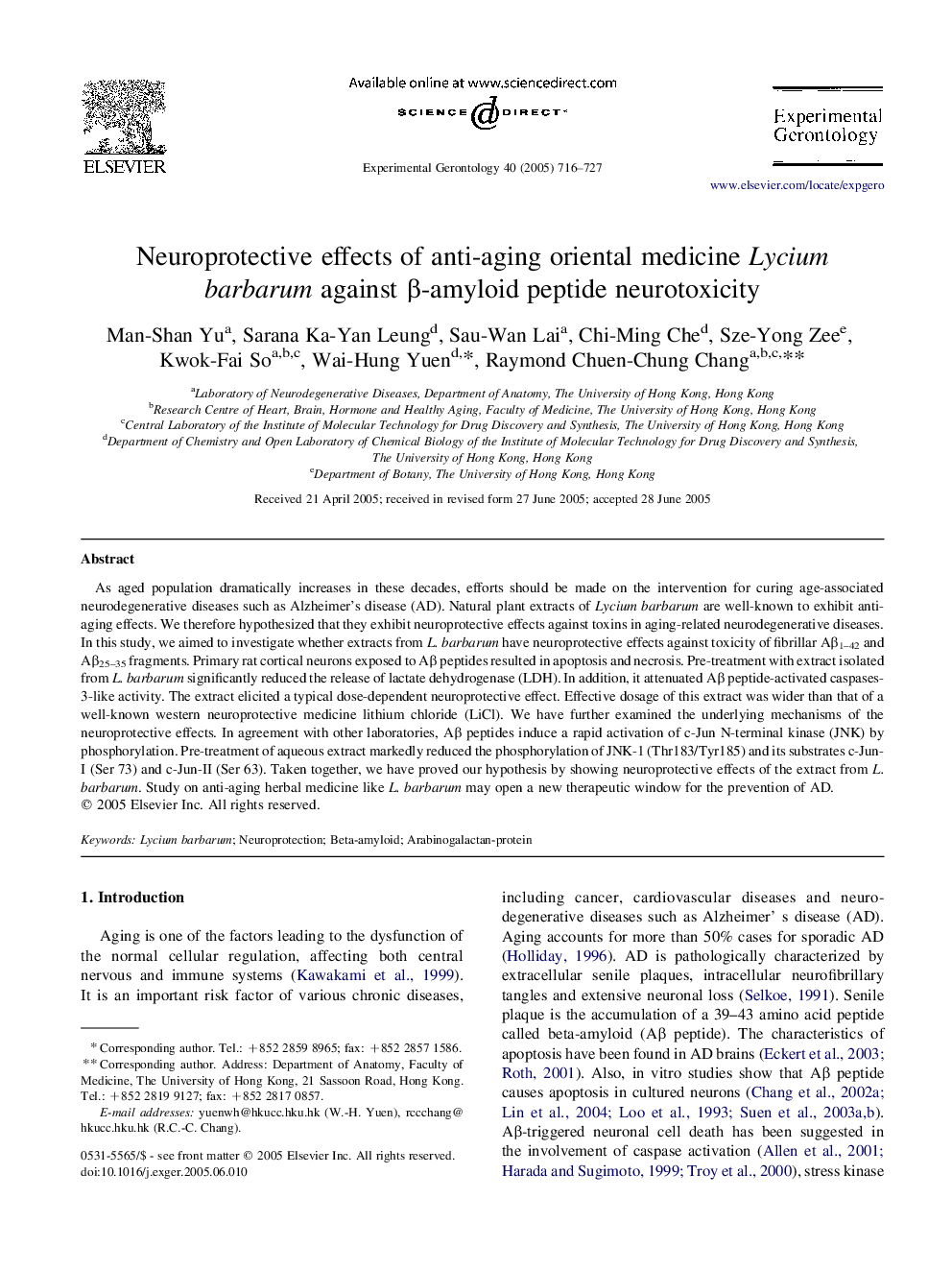| Article ID | Journal | Published Year | Pages | File Type |
|---|---|---|---|---|
| 9879979 | Experimental Gerontology | 2005 | 12 Pages |
Abstract
As aged population dramatically increases in these decades, efforts should be made on the intervention for curing age-associated neurodegenerative diseases such as Alzheimer's disease (AD). Natural plant extracts of Lycium barbarum are well-known to exhibit anti-aging effects. We therefore hypothesized that they exhibit neuroprotective effects against toxins in aging-related neurodegenerative diseases. In this study, we aimed to investigate whether extracts from L. barbarum have neuroprotective effects against toxicity of fibrillar Aβ1-42 and Aβ25-35 fragments. Primary rat cortical neurons exposed to Aβ peptides resulted in apoptosis and necrosis. Pre-treatment with extract isolated from L. barbarum significantly reduced the release of lactate dehydrogenase (LDH). In addition, it attenuated Aβ peptide-activated caspases-3-like activity. The extract elicited a typical dose-dependent neuroprotective effect. Effective dosage of this extract was wider than that of a well-known western neuroprotective medicine lithium chloride (LiCl). We have further examined the underlying mechanisms of the neuroprotective effects. In agreement with other laboratories, Aβ peptides induce a rapid activation of c-Jun N-terminal kinase (JNK) by phosphorylation. Pre-treatment of aqueous extract markedly reduced the phosphorylation of JNK-1 (Thr183/Tyr185) and its substrates c-Jun-I (Ser 73) and c-Jun-II (Ser 63). Taken together, we have proved our hypothesis by showing neuroprotective effects of the extract from L. barbarum. Study on anti-aging herbal medicine like L. barbarum may open a new therapeutic window for the prevention of AD.
Related Topics
Life Sciences
Biochemistry, Genetics and Molecular Biology
Ageing
Authors
Man-Shan Yu, Sarana Ka-Yan Leung, Sau-Wan Lai, Chi-Ming Che, Sze-Yong Zee, Kwok-Fai So, Wai-Hung Yuen, Raymond Chuen-Chung Chang,
